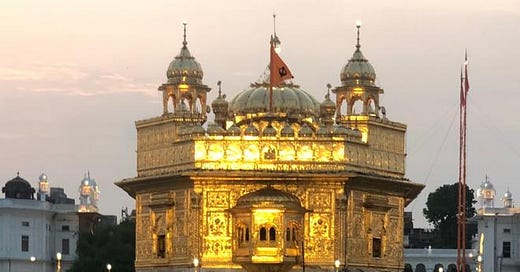Is ‘Singh’ and ‘Kaur’ Mandatory in the Name for SGPC Voter Registration?
The Shiromani Gurdwara Parbandhak Committee (SGPC) elections play a crucial role in managing Sikh religious affairs, making the voter registration process a subject of great significance. One key debate in recent times revolves around whether the inclusion of "Singh" for males and "Kaur" for females is mandatory for a Sikh to be registered as a voter in these elections.
The Importance of ‘Singh’ and ‘Kaur’ in Sikh Identity
The Sikh Rehat Maryada (Code of Conduct) establishes ‘Singh’ and ‘Kaur’ as essential identity markers for Amritdhari Sikhs, symbolizing equality and distinctiveness. Traditionally, these suffixes are used to distinguish practicing Sikhs from others. Various Sikh bodies, including the Shiromani Akali Dal (SAD), have argued that only those individuals who adhere to Sikh traditions—demonstrated, in part, through their names—should be eligible to vote in SGPC elections.
Controversy Over Voter Lists
In a recent development, the Shiromani Akali Dal (SAD) urged the Gurdwara Election Commission to remove names from the SGPC voter lists that do not include ‘Singh’ or ‘Kaur’ as a suffix. They claim this is necessary to prevent violations of Sikh conventions and to ensure that only practicing Sikhs participate in the elections. Critics argue that such a requirement may exclude many sincere Sikhs who might not have these names officially recorded due to historical or administrative reasons.
Regulatory Standpoint
While SGPC voter eligibility criteria emphasize that a voter must be a practicing Sikh, there is no explicit legal mandate requiring "Singh" or "Kaur" for registration. However, in past elections, concerns have been raised over potential misuse of voter rolls, leading to repeated calls for stricter verification processes.
Further Discussion – Watch the Video
To gain a deeper understanding of this issue and its implications, watch my YouTube video, which I streamed live, where I discuss the matter in detail:
▶️ [Watch Here](Your YouTube Link Here)
This debate underscores the broader question of how Sikh identity should be defined in religious governance, making it an issue that continues to spark discussions within the community.





The whole universe of Sikh affairs requires a complete reset. Social, political circumstances today are not same as those in 1920s. If Akalis and Sikh clergy, largely controlled by one community, wants to stick to 1920s, then Waheguru alone can save our great Panth. The way Sikh leadership has conducted its affairs, nobody should be surprised of conversions happening in Punjab, and religious/political issues in Punjab.
Rehat Maryada should be revisited. Since 1920s, millions of Sikhs across the communities, have read SGGS and know that not everything given in Rehat Maryada was mandated by our Gurus.